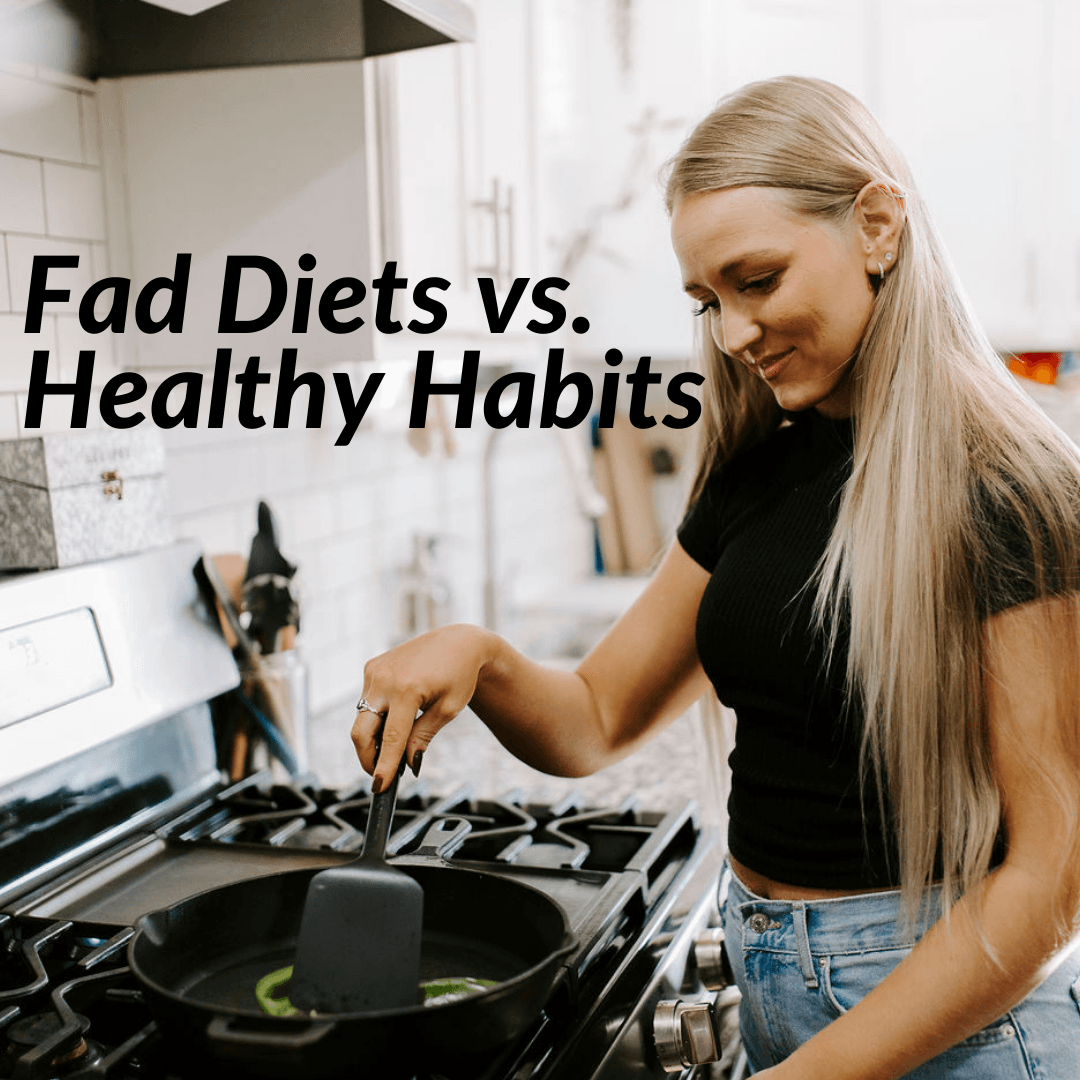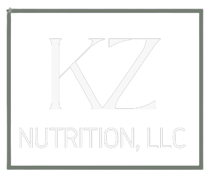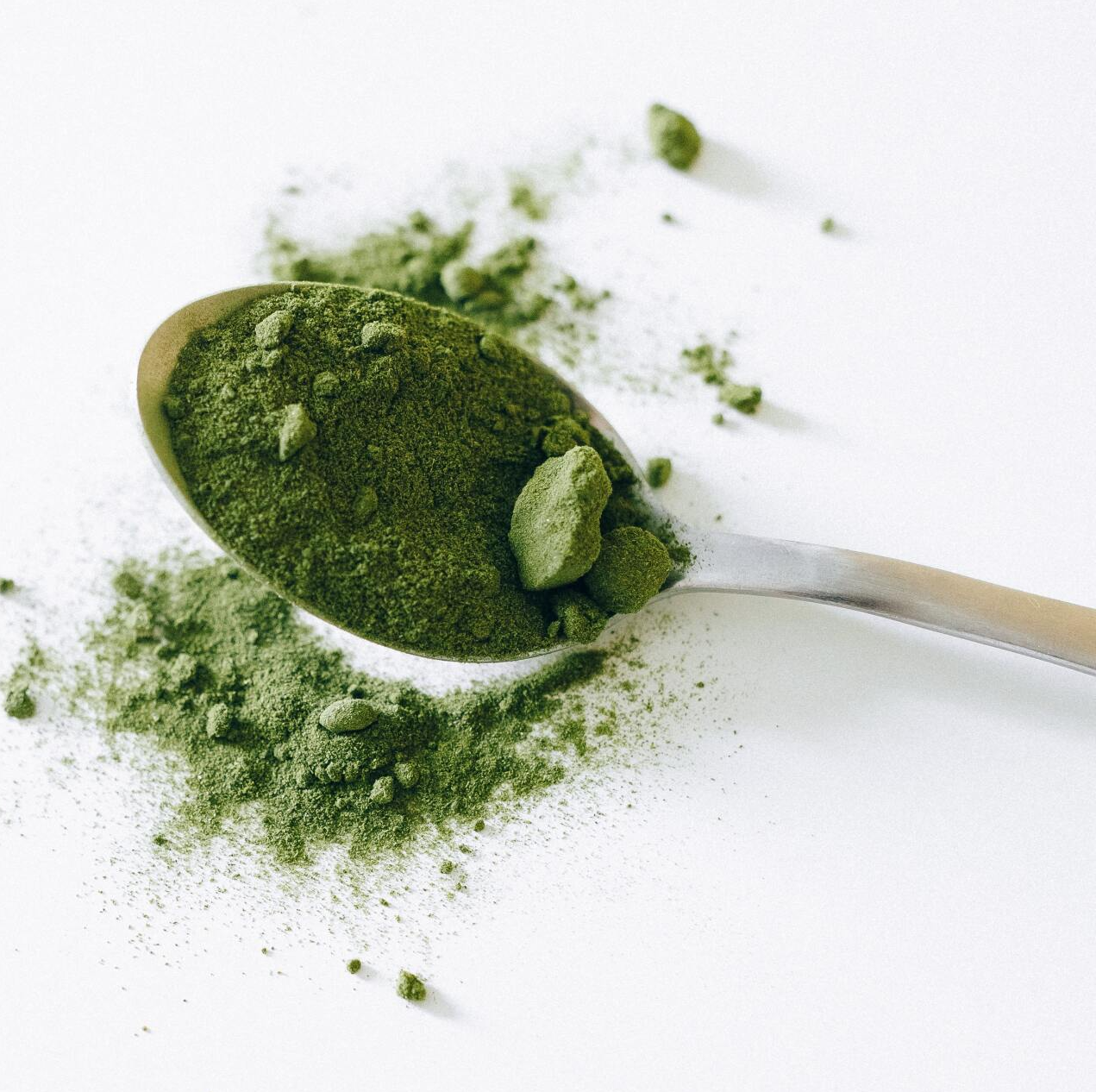By Kamryn Zimmer, RD, LD
•
22 May, 2022
Author: Kamryn Zimmer, RD, LD May 20, 2022 As a dietitian, I often get asked this question: "Is there a specific diet that you follow or recommend?" For those looking to improve their health, physique, and/or their performance, my simple answer is always, “No”. Why do we go on a fad diet in the first place? The motive behind this typically comes from wanting to alter our body composition (to lose weight) or to improve our overall health/fitness and feel better. No matter what the specific reason is, it usually comes down to a desire or a need for change. And we as humans typically like quick-fixes and fast results. Sure, fad diets can lead to results, but here are the real questions you want to ask: Are you able to maintain those results long term with the current diet you are on and is your current diet/nutrition strategy optimal for your health, performance, and lifestyle? Research shows that most diets fail in the long run (1). So, let’s talk about why that is and why most fad diets are probably not an optimal approach to losing weight, improving performance, or improving overall health. Most diets do not satisfy ALL of your unique needs. We all have different needs when it comes to health and nutrition. There are several factors that affect our food choices, including our daily schedules, personal preferences, intolerances, cultural background, financial status, etc. Many fad diets don’t take these factors into consideration, so certain diets may make you feel deprived or even stressed out when trying to stick to it. Many fad diets are also extremely low in calories. This is what leads to quick weight loss results (if that is your goal). However, research shows that following very low calorie diets for a long period of time can lead to lower metabolic rate and nutrient deficiencies (3). This is because several diets come with a rigid set of rules and restrictions (no sugar, low carb, no dairy, low fat, etc.), which can lead to a lack of variety in your diet. The less variety of nutritious foods you consume, the more at risk you are for experiencing the consequences of nutrient deficiencies. For you athletes out there, missing out on key nutrients and/or not getting enough calories can lead consequences like loss of lean muscle tissue and decreased performance. The truth is, just because you follow a certain diet, it does not mean it is optimal for your health. Diets don’t offer much flexibility or freedom. If you have a busy schedule and/or a social life, having freedom and flexibility in your nutrition plan is absolutely necessary. Sure, you may be good at planning and preparing your meals ahead of time and making it work in your daily routine. But we all know life happens, things come up, and we can’t always stick to the plan. Think about all of the life events that include food. There may be special events that you attend where you have little to no control over food. Following a strict diet while trying to enjoy life can lead to thoughts like: “I have to be extra strict tomorrow because I ate this” “I’ll workout longer tomorrow so I can eat this dessert tonight” “Wow that looks really good, but I can’t try it because it’s too high in fat/sugar/calories” These thoughts can preoccupy your mind, preventing you from being fully present and enjoying the moment. This rigid mindset can also lead to a poor relationship with food. Lacking flexibility and freedom to make changes in your daily life is a big reason why most fad diets are not sustainable. Diets are not enjoyable for most people. It’s obvious to say that some diets out there are simply no fun to follow. Not only are you missing out on some of your favorite foods, but the negative side effects that you may experience from restrictive diets are no fun either. As mentioned earlier, restrictive diets provide little energy and nutrients, which can lead to weakness, fatigue, brain fog, and feeling moody (3). In addition, restrictive diets and food rules can also set you up to feel guilty, anxious, and stressed when you are trying to stick to the diet or if you have eaten something that is “off the plan” (2). We all know that added stress and anxiety doesn’t do our physical or mental health any good. Needless to say, these effects that often come with strict diets can decrease your quality of life. Now, if you find a diet that you believe you can follow long term and it provides everything you need to make you happy and healthy, then by all means, go for it. But next time you are considering following a specific diet to reach your goals, ask yourself these questions: Can I consume a variety of nutrient-dense foods? Can I sustain it for a long period of time? Does it support my goals? Will I enjoy it? So why do we choose diets over developing habits? As I mentioned earlier we want the fastest way to see results. But remember, quick results does not mean optimal. Building habits takes time, effort, and consistency. According to Psychology Today, developing a habit is a process in which a behavior, through regular repetition, becomes automatic (5). A study published by the European Journal of Social Psychology in 2009, showed that it takes an average of 66 days to form a habit (4). Focusing on building habits does lead to lasting behavior change, but this does not just happen overnight. Can you see results with healthy habits? Yes. Can you adopt healthy nutrition habits that you enjoy and that support both your goals and overall health? Absolutely. Does this magically happen in just a few days? No. Healthy habits provide benefits that most diets cannot. Building habits creates more self-awareness and helps you learn. During the process of building healthy habits, you will learn and understand what works for you and your own body’s unique needs. Blindly following nutrition rules won’t teach you anything valuable. Focusing on adding healthy nutrition habits into your daily routine rather than restricting supports a healthy relationship with food, leading to less feelings of guilt and failure around food choices. When you allow yourself freedom and flexibility while developing your own habits, you will tend to experience less stress and anxiety around social events where there is food. This also makes habits more realistic and sustainable (long term). Bottom line: Yes, habits take time to develop, but getting caught up in the cycle of dieting off and on takes up even more time in the process of reaching your goals. Fad diets may provide quick results, but they are not always optimal for your physique/fitness goals and your overall health. Focusing on adding healthy nutrition habits to your daily routine, while allowing flexibility, is more likely to lead to long term results. Whether you are looking to improve your physique, improve your performance, or improve your health, the optimal strategy for you is going to take time, consistency, and effort and you should be able to learn through and enjoy the process. References: Campbell-Danesh, Aria. “Why Do Most Diets Fail in the Long Run?” Psychology Today, Sussex Publishers, 31 Aug. 2020, https://www.psychologytoday.com/us/blog/mind-body-food/202008/why-do-most-diets-fail-in-the-long-run. “Five Risks of FAD Diets.” Five Risks of Fad Diets: Nova Physician Wellness Center: Weight Loss Specialists, PatientPop, Inc., https://www.novaphysicianwellness.com/blog/five-risks-of-fad-diets#:~:text=Fad%20diets%20can%20negatively%20impact,blame%20yourself%20and%20feel%20discouraged. Kaufman, Caroline. “4 Ways Low-Calorie Diets Can Sabotage Your Health.” EatRight, Academy of Nutrition and Dietetics, 7 Jan. 2021, https://www.eatright.org/health/wellness/your-overall-health/4-ways-low-calorie-diets-can-sabotage-your-health. Lally, Phillippa, et al. “How Are Habits Formed: Modelling Habit Formation in the Real World.” European Journal of Social Psychology, vol. 40, no. 6, 16 July 2009, pp. 998–1009., https://doi.org/10.1002/ejsp.674. Psychology Today Staff. “Habit Formation.” Psychology Today, Sussex Publishers, https://www.psychologytoday.com/us/basics/habit-formation.












